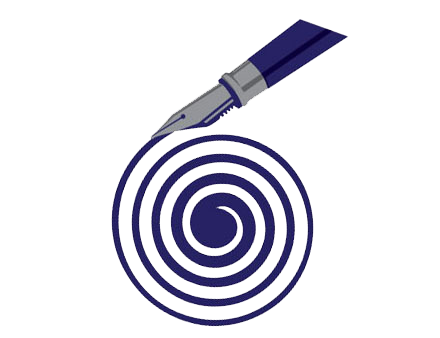We’re now well into the later part of January, but hopefully everything is still going well with your New Year’s resolutions. If you haven’t yet made one, you’re in good company—neither have I. But here’s a possibility: getting better organized. No, I’m not going to send the camera crew from Hoarders around to make you clean up your house—but how about better organization in your writing?
Last time we considered how to get sentences off to a good start. So let’s press onwards and look at some principles that will help you better organize multiple elements within a sentence or across several sentences.
How does this sentence scan?
Riding out to Cape Canaveral to see space launches, watching hummingbirds, and tennis are some of my favorite pastimes at our new home in Florida.
Something’s not quite right here—or at least not very good. But what is it? Look at the subjects—there are three of them: Riding out to Cape Canaveral to see space launches, watching hummingbirds, and tennis. And the most complicated one is mentioned first: Riding out to Cape Canaveral to see space launches. Since it’s a phrase, it takes the reader’s brain a little while to process, and when it turns out that it’s part of a still longer phrase, the result can be confusion or at least subconscious annoyance at having to work so hard to read an apparently simple sentence. (Another problem is that the three subjects are not fully parallel, which we covered in this post. But let’s leave that aside for the moment.)
If, on the other hand, we start out with the simplest of the series and progressively get more complicated, look how much easier it makes the reading:
Tennis, watching hummingbirds, and riding out to Cape Canaveral to see space launches are some of my favorite pastimes at our new home in Florida.
Here the subjects get more complex as they go—the first is just one word; the second, a two-word phrase, and the longest phrase of all the subjects comes last. So here’s the first principle: simple, then more complex. If you need a good example to help you remember this principle, just think of those famous words from the Declaration of Independence: life, liberty, and the pursuit of happiness.

Let’s look at another principle that’s useful when considering how sentences flow from one into another. Check out this example:
The vet believed that my cat Fiona had labyrinthitis. Fiona had been having trouble with her balance, so that made sense since the condition affects the inner ear.
Again, this example is not out-and-out wrong, but it doesn’t flow well. At the end of the first sentence we have a medical term, labyrinthitis. Most people probably will not understand it, so it could be a bit of a stumbling block. The reader has to keep going until the very end of the second sentence to find out that labyrinthitis affects the inner ear.
A better way is to start with words that are familiar to the reader and then introduce the unfamiliar medical term:
The vet believed that my cat Fiona had an inner ear disorder called labyrinthitis. Fiona had been having trouble with her balance, so that made sense.
Notice that this version is also “tighter”—that is, shorter—than the previous. And by leading up to the medical term by explaining it first, it’s more likely that the reader will be able to absorb it, instead of just skipping over it since it’s unfamiliar. So you can think of this principle as familiar, then new.
Lastly, here’s a close relative of familiar, then new:
Spanish is relatively easy at first for English speakers, but its more advanced grammar can be difficult. Russian has a lot of inflectional endings to memorize. And of course Arabic has a completely different way of writing. It’s difficult to say which language is the hardest to learn because there are many factors to take into consideration.
How could this passage be improved? Look at how the first three sentences seem to be examples of a particular topic—but the topic itself doesn’t show up until the very end. Putting the topic first and then the examples makes for much smoother sailing:
It’s difficult to say which language is the hardest to learn because there are many factors to take into consideration. Spanish is relatively easy at first for English speakers, but its more advanced grammar can be difficult. Russian has a lot of endings to have to memorize. And of course Arabic has a completely different way of writing.
You could call this topic, then comment or topic, then examples.
So be on the lookout for examples, both good and bad, of
Simple, then complex
Familiar, then new
Topic, then comment (or examples)
out “in the wild,” and please share them below! I’ll be back next time with some grammatical devices that can help with putting these principles into practice. (Yes, grammar CAN be useful! 😊 )






